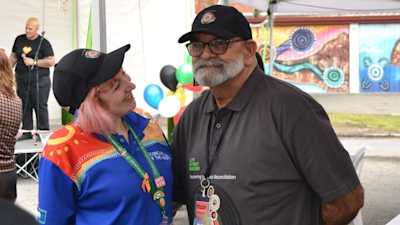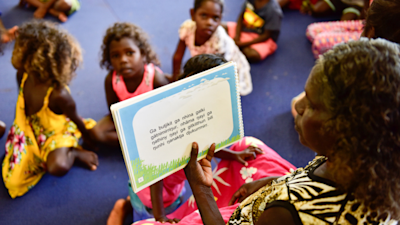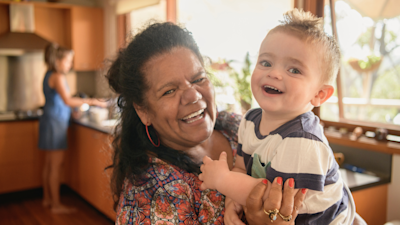It's up to EVERYONE to call it out - children and young people's experiences of racism in the Northern Territory shared in new report.
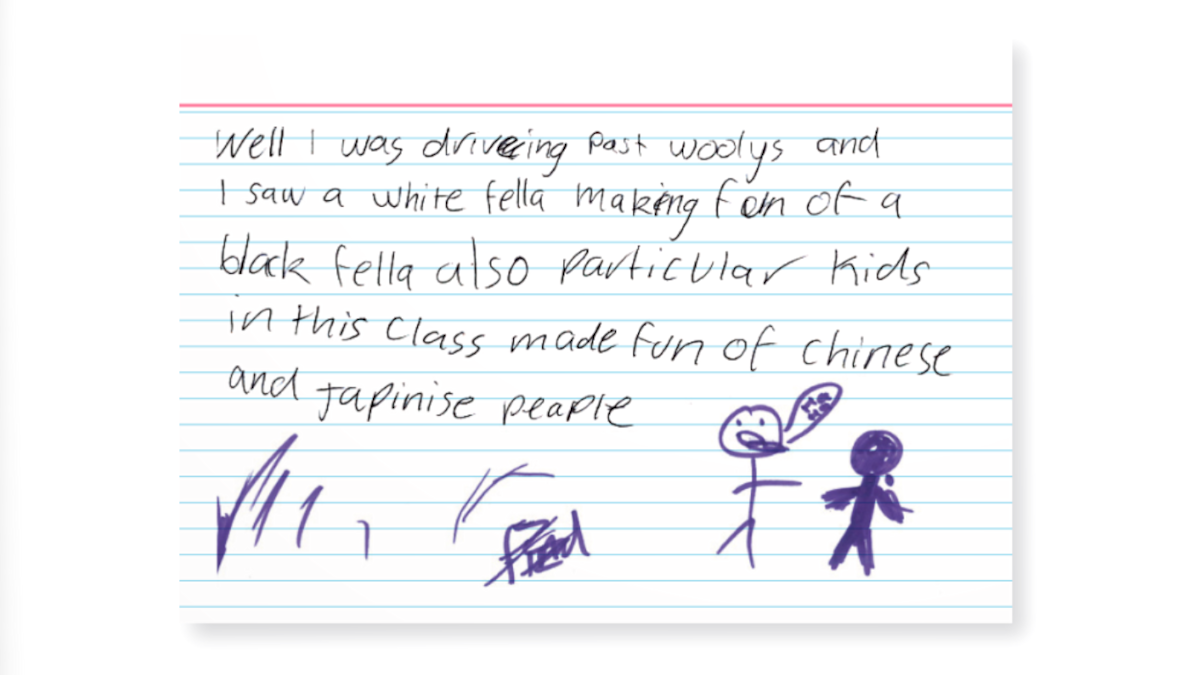
Image: Hand written note and drawings from a young person.
The Office of the Children's Commissioner Northern Territory (NT) has released a new report on the racism by Aboriginal and Torres Strait Islander children. In interviews with more than 280 children, the report highlights the extreme experiences of racism and abuse towards Aboriginal and Torres Strait Islander children in the Northern Territory.
Claire Robbs, Life Without Barriers Chief Executive, said the emotional toll of racism is ‘profound—it creates fear, isolation, and trauma.”
The weight of this cannot be understated – the force of multiple and compounding daily experiences of racism in all its forms impacts significantly on the lives and wellbeing of children and young people.
The Territory's Child Commissioner, Larrakia woman, Shahleena Musk, shared that First Nations children withdraw from school, public space and social activities because of racism.
"The hard thing is they can't be what you can't see, Commissioner Musk said.
"You can't see yourself as being a lawyer or a doctor further down the track, because you're being told that you're no good, you're not worthy, and [in some cases] that you're a criminal.
"Negative, intimidating and discriminatory community narratives about children and young people needed to change, and systemic whole of Government reform that listens to the voices of children and young people with lived experience is urgently required."
"Young people must not carry the responsibility of addressing racism on their own. We all have a duty to prevent racism," Commissioner Musk said.
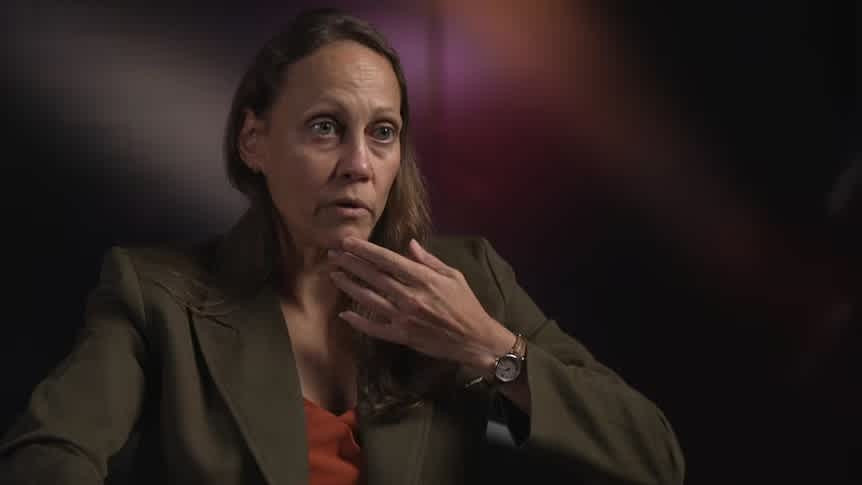
Image: Image of NT Child Commissioner Shahleena Musk, she is wearing a khaki green jacket and orange top. (Image: ABC News).
What does the report say?
Children and young people described frequent and multiple experiences or observations of racism. It was evident children and young people were acutely aware of the world around them, and reflected back the narrative that exists in the community.
Children identified school and public places as one of the most common and consistent places they experienced racism
33% of all children and young people who responded had experienced or observed deliberate and targeted acts of racism
31% of all children and young people who responded had experienced or observed racial stereotyping.
Experiences of shame were also high, including: being singled out from the group, not knowing rules or expectations, being forced to act in a way that does not confirm to social or spiritual obligations, internalised racism, response to colonising power dynamics.
From the consultations, it was clear that many children and young people are exposed to multiple forms of racism across different systems and structures in the Northern Territory.
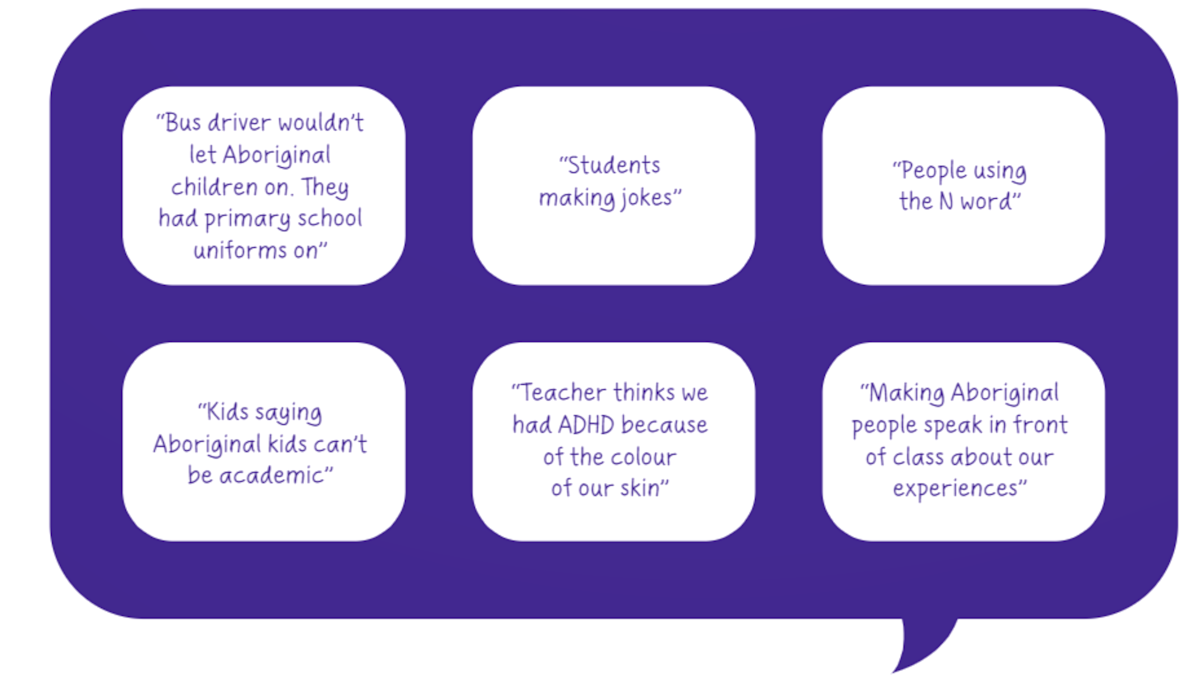
Image: Speech bubbles of children's experiences on a purple background.
“Experiencing racism is not really nice. It’s happened in class, outside the school office (by) friends and my classmates,” said one young person.
Recommendations from children and young people
stopping racism in the first place is everyone’s responsibility
everyone needs to change the narrative about children and young people in the community
supporting children and young people to respond to racism safely
systemic whole of Government reform that listens to the voices of children and young people with lived experience is urgently required
creating safer spaces for children and young people
Children and young people are the future - their lives and their education matters.
A successful education journey is essential for a positive future. However, many children and young people growing up in out-of-home care are at risk of not achieving their educational potential as they are often impacted by complex histories and trauma.
As a major provider of out-of-home care, for children and young people in Australia, Life Without Barriers' recognises that we play an important role – not only are we responsible for ensuring children and young people have the best start in life, but also to support them reach their learning goals and full potential.
Our Education Strategy, Learning Without Barriers, outlines our commitment to working together to ensure our education systems are inclusive.
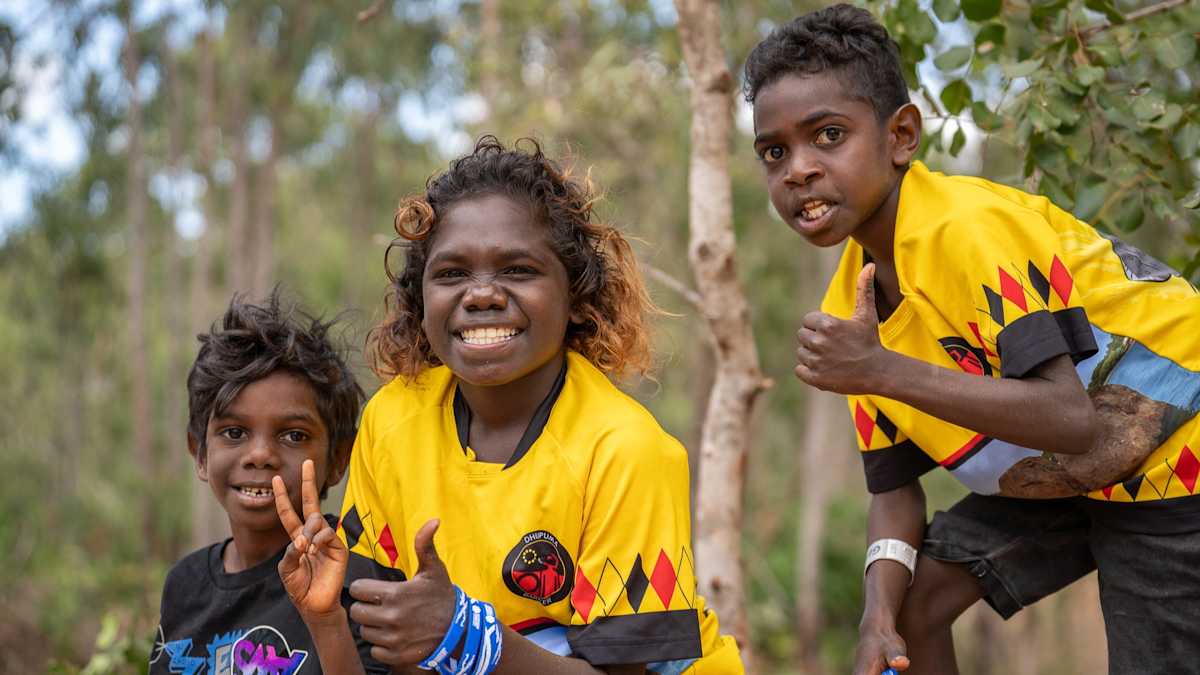
Image: A group of three young people at the Garma Festival smiling at the camera . Image provided by Garma Festival.
